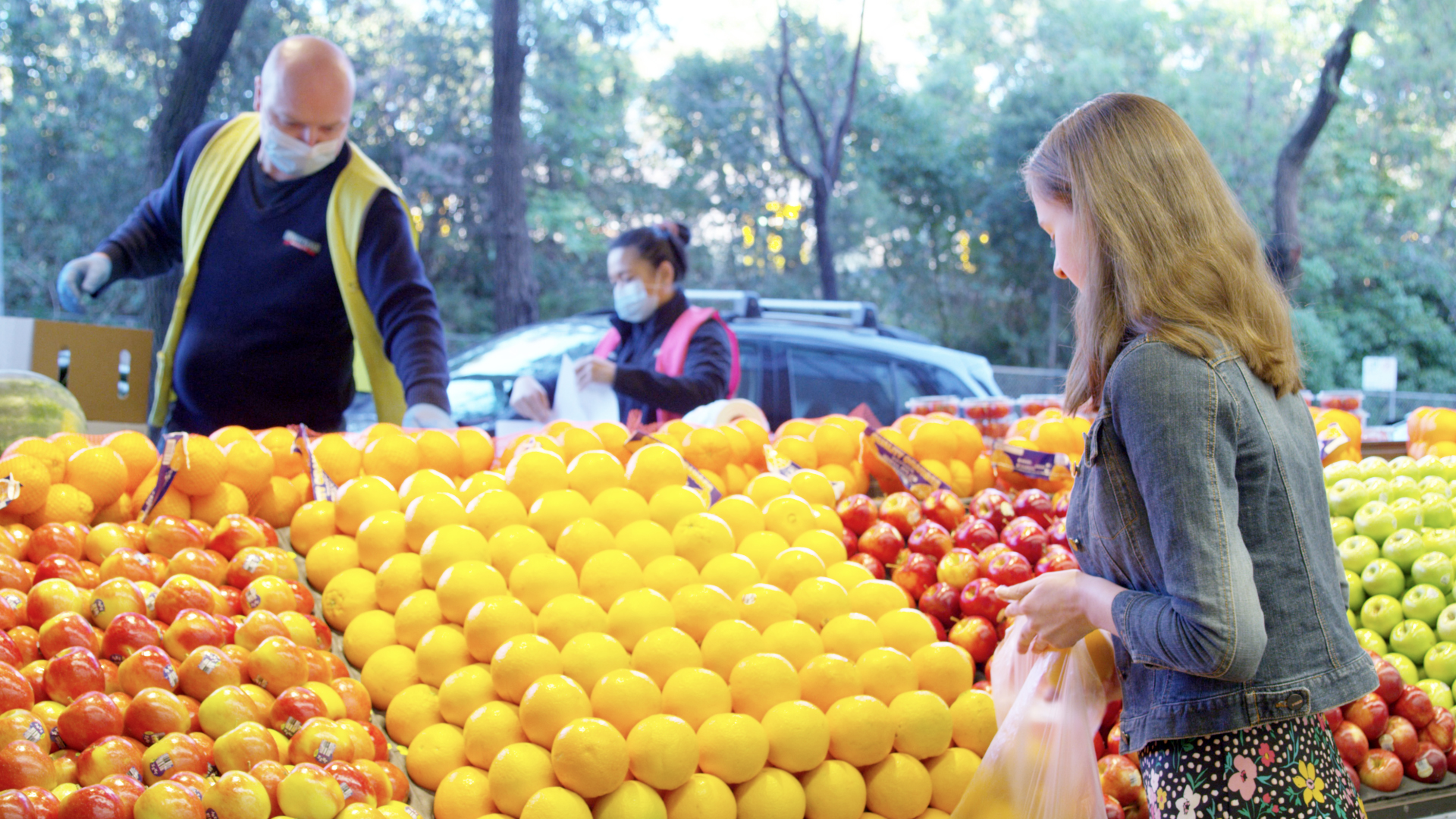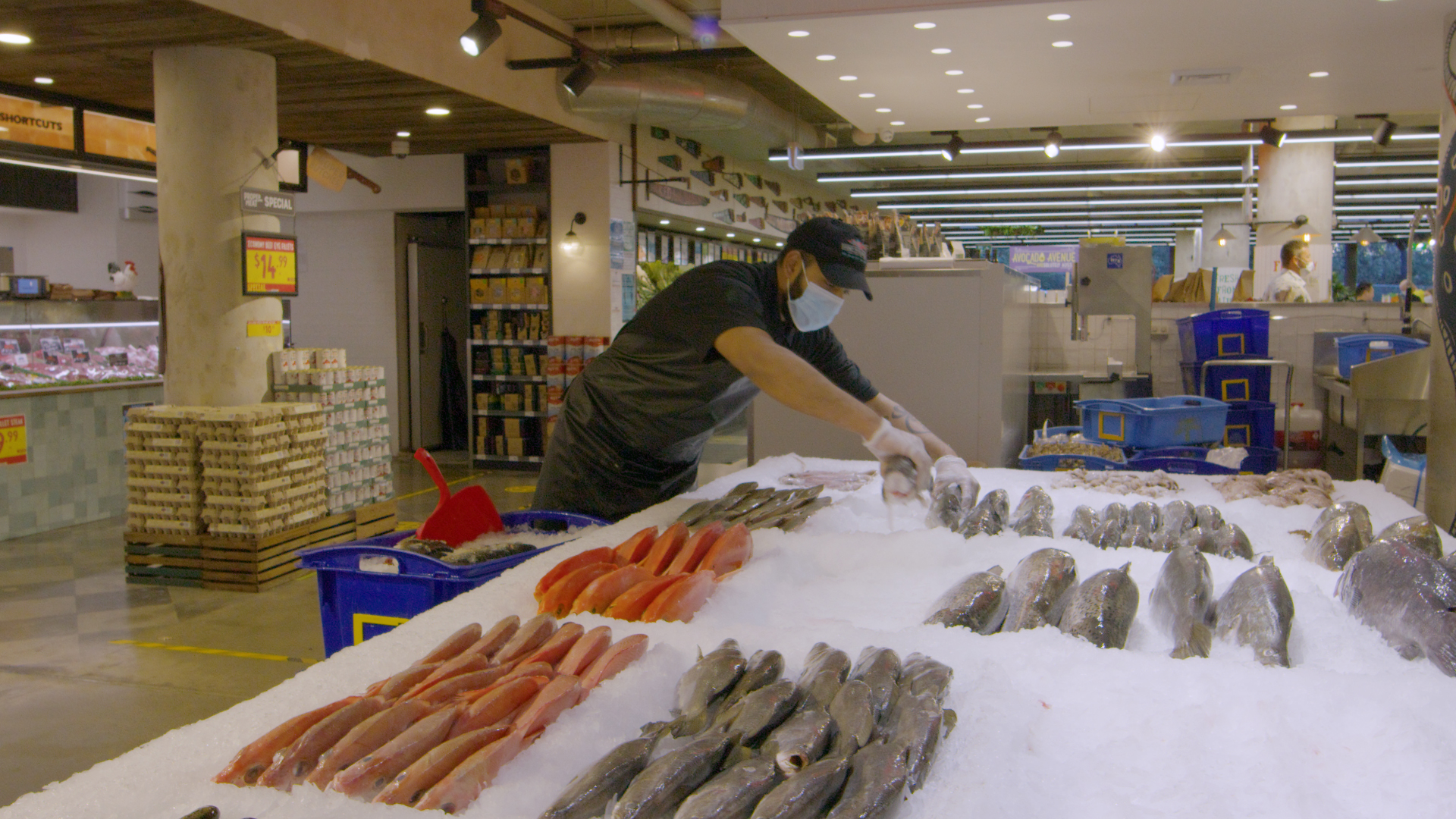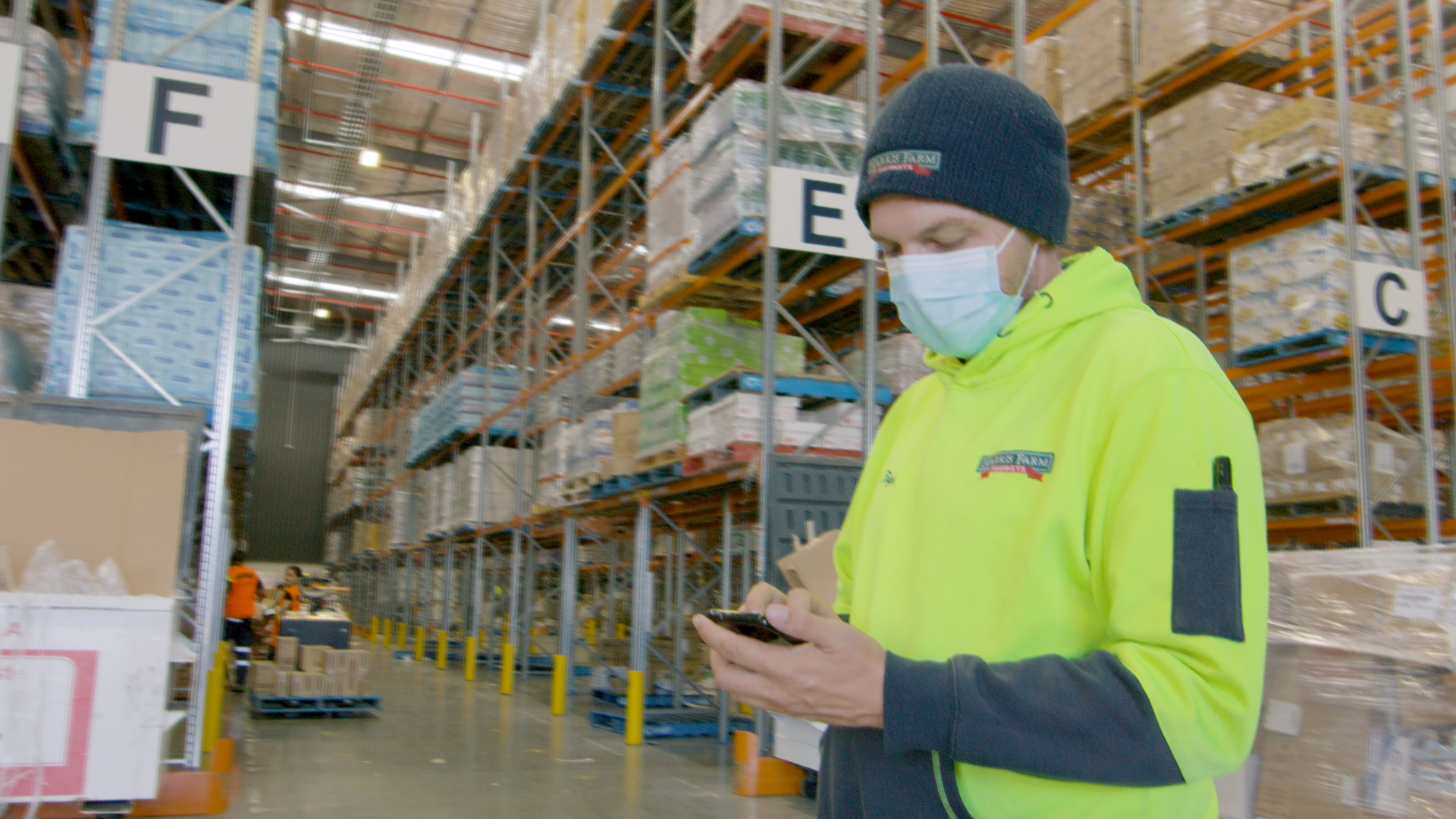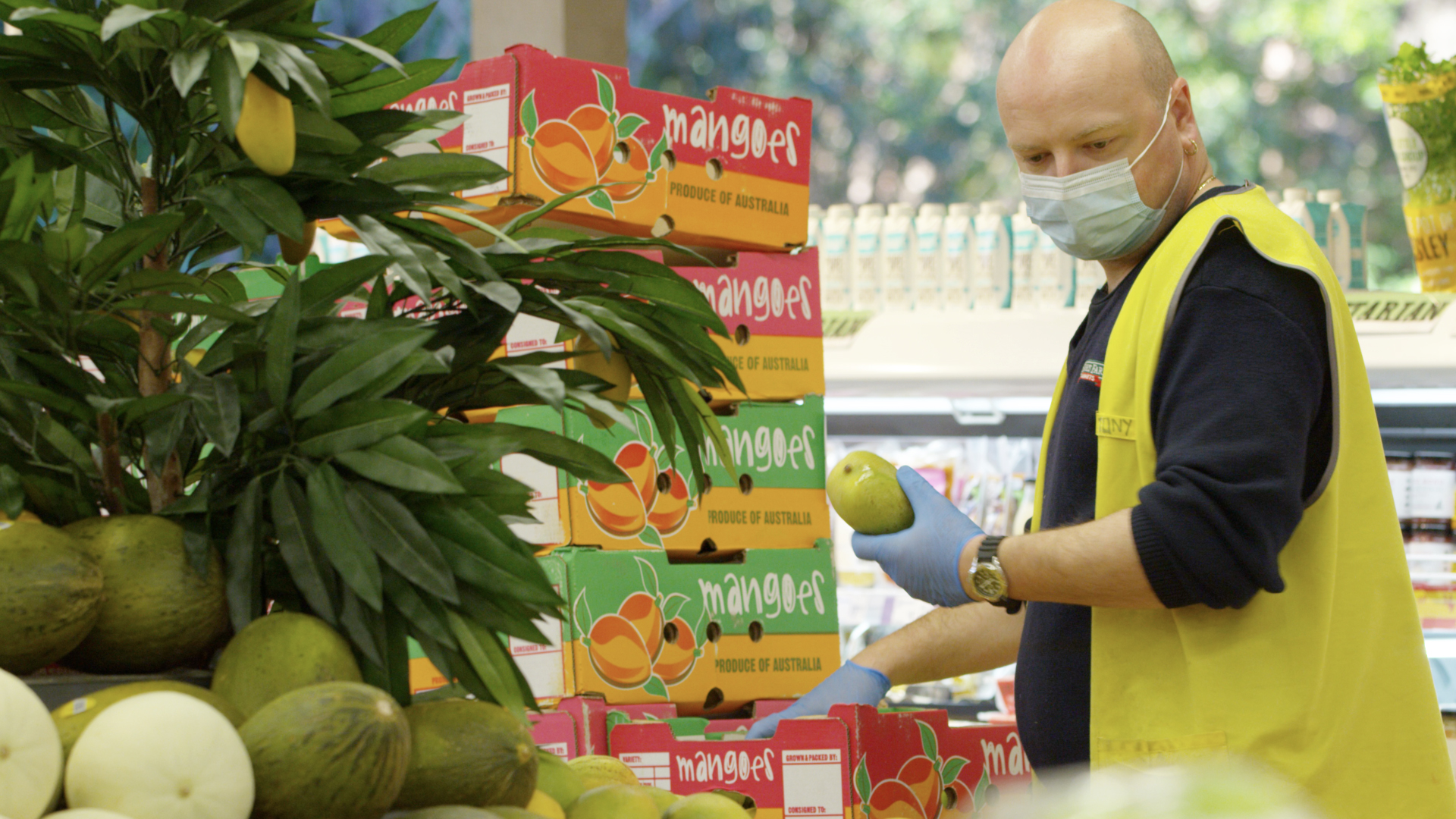Customer Story
Harris Farm Markets harvests a fresh take on operational efficiency with cloud HCM software

-
1,200
employees use Dayforce each day
-
14.8%
decrease in turnover
-
$2M
in wage cost savings
Company
Headquarters
Sydney, New South Wales, Australia
Industry
When David and Cathy Harris opened the first Harris Farm Markets in Villawood, Australia in 1971, they wanted to bring more than just another grocery store to the community. They wanted to create a market where nature was at the center of everything they do. Families could shop together for the freshest harvests, and farmers could prosper off sustainable cultivation of the land through a close partnership with Harris Farm Markets.
Over the past 49 years, Harris Farm Markets has expanded greatly from that initial store, all while remaining 100% family owned and committed to providing a quality experience. The company now employs 2,500 people at 24 stores across Sydney and New South Wales, and it continues to expand its reach with its newest location recently opening in Queensland.
“Harris Farm Markets is about the greater goodness,” says James Williamson, Harris Farm Markets’ CFO. “Everything that we do is for the benefit of our customers. This comes through in how we design our stores, making them exciting places for people to shop with an abundance of quality products that we source from across Australia.”


Navigating the challenges of retail workforce management
Having the right people in place to uphold the company’s values and mission to deliver a great customer experience is crucial. This, however, has proven challenging for Harris Farm Markets given the high turnover rates in the retail industry. “Retail is still seen as a job you take while you're studying for another career path. It's not necessarily seen as the career path itself. And we really need to invest in and work with our people to show them what we offer, and to make us an option for the long-term,” says Nichol Trueman, Head of Safety, People, and Culture.
Onboarding new employees quickly and efficiently as the company continues to expand has also been difficult due to manual and inconsistent processes. Making sure new employees have a proper introduction to the company is important in setting the stage for a long and successful employment experience.
In addition, Australia has very complex rules for rostering and paying employees, which may depend on the job being performed within the business. It is exceptionally important to accurately calculate and pay employees based on the rules that apply to each employee, not only from a compliance perspective, but also to make sure that employees are compensated accurately and on time for the hard work that they do.
“The labour laws under which we operate in the retail industry in Australia are very complex. We pay our employees under three different awards and they have a lot of complex calculations in terms of the rate of pay,” says Williamson.
With such a complicated labour environment, Harris Farm Markets needed cloud HCM software that would streamline its HR operations and allow the company to focus on expanding its presence in Australia while offering a top-notch employee experience.

Creating a seamless infrastructure to support onboarding and engagement
Harris Farm Markets chose to partner with Dayforce and leverage Dayforce as its unified HCM solution. The company completed implementation of Dayforce in August 2020 for payroll, workforce management, recruiting, onboarding, learning, performance, compensation, and succession planning.
“Our goal in partnering with Dayforce was all about having an end-to-end solution to manage our workforce,” says Williamson. “We're 2,500 employees and growing rapidly, and we needed a system that would help us manage our people from when they’re hired through the employee lifecycle.”
Prior to having Dayforce, Trueman says that the company had three disparate platforms and multiple paper-based policies and processes for payroll, HR, and workforce management. It was not a model that the company could scale as it grew. “Previously, new employees had to read and fill out a 40-page new hire pack, including tax file information, contracts, and superannuation information,” she says. “Now all of that is online, and it's really easy for the employee to fill out. That, combined with the online induction that they can do, makes for a more positive introduction to our organisation.”
These new onboarding processes were put to the test during Harris Farm Markets’ recent acquisition of its first store in Queensland. With COVID-19 causing a border closure between New South Wales and Queensland, Williamson was glad to have cloud HCM software in place that allowed them to complete the onboarding and operational handover of the store without having to be physically present. “We’ve been able to implement and execute on that acquisition completely remotely through Dayforce. We haven't had to install any hardware for clocking in or out as employees can do that directly on the Dayforce mobile app. We've managed to onboard all those new employees really quickly and get them up to speed from the first day of trade,” he says.


Meeting the expectations of a digital-first workforce
This shift to a solution that is online and mobile-enabled is something that, while new for Harris Farm Markets, is expected by its younger generation of employees. “The workforce nowadays expects that they're able to access their information at their fingertips, and we want to meet that expectation,” says Trueman. Williamson adds, “Being able to put the system in their hands on their mobile phone so that they can clock in and out, set their availability, check their roster, check their pay slips, and complete training, is incredibly powerful and it increases the number of people that are using the platform.”
And the proof is in the pudding when it comes to employee adoption of Dayforce. “Since implementing Dayforce, we've seen really high adoption rates amongst our employees,” says Williamson. “We have around 1,200 employees using the system each and every day, which is quite high considering we only have 2,500 employees in total and not all of them are working each day.”
Giving employees easy access to Dayforce means that they are in control of their own data and can take part in shaping their experience with Harris Farm Markets. It also frees up time for the HR team by minimising transactional tasks and allowing the team to focus on strategic growth initiatives.
One of the strategic initiatives that Trueman and her team are pursuing is to increase employee retention. The retail industry standard for turnover in Australia is currently 41%, and Harris Farm Markets was sitting at about 54% prior to partnering with Dayforce. Since implementing Dayforce, the company has seen turnover drop to 46%, and Trueman says she is looking to reach a target of about 35%, with a further stretch target of 20%. “In implementing Dayforce, we’ve been able to create a better candidate experience from the beginning,” Trueman says. “Dayforce will help us provide better service to our employees throughout every step of their lifecycle.”

Boosting operational efficiency by unifying time and pay
Dayforce has not only helped Harris Farm Markets improve its employees experience. Having a unified system for time and pay has also given the company real-time insight and data to better leverage its most important asset – its people – effectively.
“From my perspective as a CFO, the most important challenge that we've managed to solve with Dayforce is the integration between time and pay in the one system,” says Williamson.
Trueman adds that prior to Dayforce, Harris Farm Markets had two different time and attendance systems, and a separate payroll processing solution. “The systems weren't talking to each other well, which resulted in substantial manual adjustments having to be made. It created challenges for us in terms of compliance, keeping accurate time and attendance records, and co-linked payroll information,” she says. “Wrapping time and pay up into the one system with Dayforce has been very smooth.”
Harris Farm Markets imports sales data, customer data, and item counts into Dayforce, and uses real-time reporting to roster according to the needs of each individual store. “The real-time aspect of being able to look at our wages and rostering is incredibly important. Grocery is a really fast-paced business, so it's not enough to look at our results monthly or weekly; we actually need to look at them daily. Having Dayforce really helps us manage those trends on a day-to-day basis rather than having to wait to the end of the week to make adjustments,” says Williamson.


Improving data accuracy with a single source of truth
While quick visibility and access to data are both important, it is equally important to be confident that the data is accurate. “The biggest value of having a unified solution for time and pay is having a single source of truth,” says Williamson. “There's no disconnect between the payroll system and the time and attendance system because they are one in the same. This means we have much more accurate data and we can drill into and see trends in our business to identify possible efficiencies and improvements we can make.”
Data accuracy is also crucial to remaining compliant with the complex labour laws in Australia. “Using Dayforce helps us to manage our compliance,” says Williamson. “We are able to automate some reports to look at specific things which makes it a lot easier to check that we are compliant.”
The result of having more accessible and more accurate data is that Harris Farm Markets has been able to efficiently manage and roster its people, creating sizeable savings.
“I think one of the biggest improvements that we're going to see in managing labour costs is in making sure that we've got the right person in the store at the right time. That means we can manage our overtime effectively. We can balance between juniors and adults to bring the overall cost per hour down. And it means that there's no surprises with the wage costs because we can track it daily and make adjustments as required,” says Williamson. “I believe the ROI from implementing Dayforce could be as much as $2 million in terms of our wage costs. The grocery industry is a very low margin, very competitive market, so every dollar counts.”

Expanding both its footprint, and its partnership with Dayforce
As Harris Farm Markets continues to grow across New South Wales and Queensland, having a partner like Dayforce to help optimise its people operations is essential. “One of the major factors for deciding to implement Dayforce was our expansion plans. We wanted to look particularly at our people processes and find more effective and efficient ways of doing things,” says Trueman.
Given the success that Harris Farm Markets has seen from its use of Dayforce so far, it is also planning to adopt additional Dayforce capabilities to continue supporting its growing workforce. “Dayforce is a very powerful solution. For example, I’m really loving Succession Planning because we are a growing business, so we need visibility into who we're planning to succeed through roles,” says Trueman. “We've also just decided to implement Engagement, so I can't wait to roll that out as well.”
Related Customer Stories
Ready to get started?
